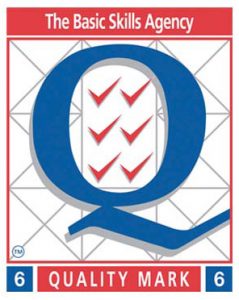English
You will find an overview of the English Units of work for each Year Group below. These include Fiction, Non-Fiction and Poetry with details of the books and poems that are used in each class.
You will find an overview of the English Units of work for each Year Group below. These include Fiction, Non-Fiction and Poetry with details of the books and poems that are used in each class.
For the assessment of writing and reading, staff use the following documents. We call these our ‘key learning objectives’. They are a list of key skills that a child should be using/demonstrating by the end of the year in order to be assessed as working securely within that year group. If you have any further questions, please contact your child’s class teacher.
Our school is committed to the teaching of reading by utilising all of the methods available to us, recognising that all children need to have a secure base in Phonics (see below). Our core reading scheme in Key Stage 1 is Oxford Reading Tree, supplemented with other publications. In Key Stage 2 ‘real books’ are graded through the use of Accelerated Reading Scheme, Renaissance Learning.
Children have many opportunities to learn to read. These include regular group reading sessions, individual reading and whole class reading projects. We also have cross phase Reading Buddies.
We are very lucky to have fantastic volunteers who help support reading across both Key Stages. These adults provide a vital role in promoting reading for enjoyment and are able to devote quality time to individual children to help with sounding out unknown words, the pronunciation of specific sounds, the understanding of the content of the book and the intonation and expression needed to make the book enjoyable for the listener.
In our reading sessions children are encouraged to discuss their opinions about the book being read, to talk about their experiences associated with the book, to answer or ask questions about the subject matter. The children are supported when reading aloud to encourage self correction, de-coding skills through sounding out the phonemes in the word, reading to the end of the sentence to guess the word in question or through visual memory of the word.
The children are asked questions about the content of the book, the characters, the organisation of the book and the illustrations. We aim to make the children feel that their opinions are important and that the rest of the group or the class should listen to them.
In Key Stages One and Two, the children answer comprehension questions about a variety of fiction and non fiction books and texts, to ensure that the children are given a variety of genres to read and to explore.
At St Chads, Key Stage 1 children follow the Rhino Readers Twinkl Reading Scheme along with other more general phonetically decodable texts. Children are also encouraged to choose a book from our infant library to take home to read for pleasure.
In Key Stage 2, the children use the Accelerated Reading program. The scheme is used to encourage children to read for pleasure and to help develop their understanding of reading (comprehension). Your child will have bought home a letter that allows you to set up email notifications of when your child has taken a reading quiz based on their book. This Home Connect service will also recommend other books that might appeal to your children and be appropriate for their reading ability. If you would like another copy of this information letter, please contact your child’s class teacher.
In Reception Class and throughout Key Stage 1 we use the Twinkl Phonics Scheme in order to support the Government’s determination to enable every child to read by the age of six. The children are taught phonics and high frequency words daily. They are also given the opportunity to practice reading throughout the day.
The children are also given writing activities which enable them to practise using the graphemes they have learnt in addition to practising their punctuation, spelling of common words, their handwriting and their creative thinking.
There is a statutory Phonics Screening Check in Year 1 which takes place in June.
At Poulton St Chad’s cursive, joined up handwriting is taught. Children are introduced to this style from their earliest schooling as it is considered to be the most natural development of children’s earliest attempts at writing. Teachers and TAs are expected to model the handwriting style in their handwriting.
See our policy for more details:
